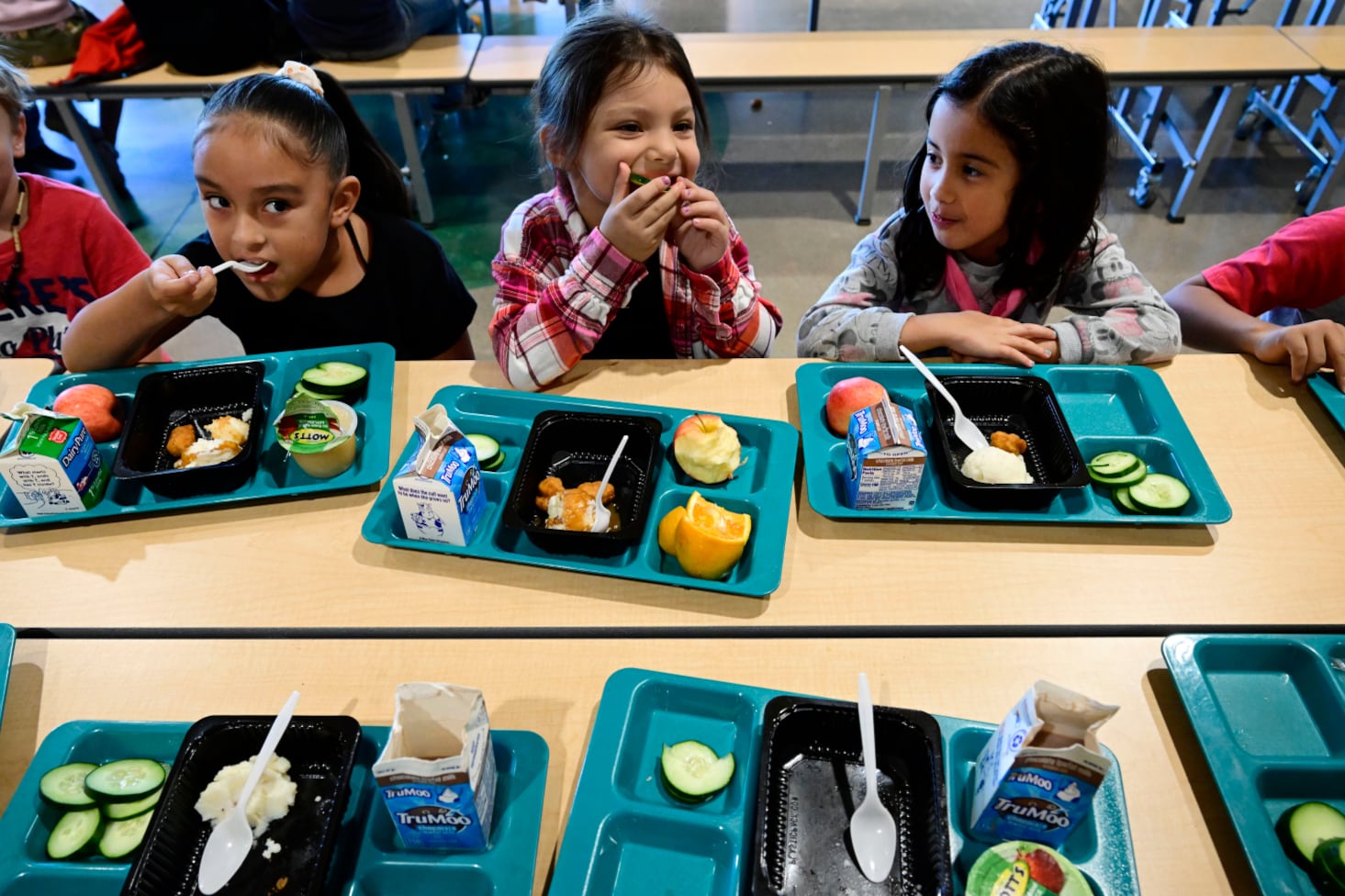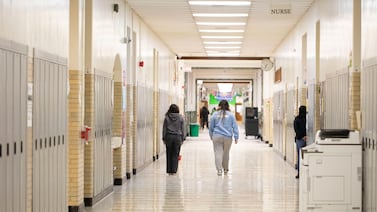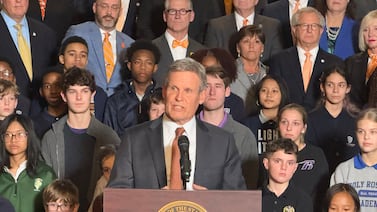Update: Since this story was published in early December, many more districts have said they’ll participate in Healthy School Meals for All. Find an updated list here.
Many Colorado school districts, including Jeffco, Cherry Creek, Aurora, and Adams 12, plan to offer free school meals to all students starting in the fall of 2023 through a new state program funded with a voter-approved tax measure affecting high earners.
Of two dozen districts surveyed by Chalkbeat, 16 plan to offer universal free meals next year. But some districts remain undecided, including two of Colorado’s largest districts — Denver and Douglas County.
Brehan Riley, director of school nutrition at the Colorado Department of Education, said of school district officials, “There seems to be a lot of interest, but people are still unsure. They want to understand it a little bit better.”
Called Healthy School Meals for All, the program is meant to ensure students are getting the nutritional fuel they need to learn and eliminate the stigma that sometimes comes with the current income-based method for doling out free meals.
The initiative comes on the heels of two school years where the federal government waived income eligibility requirements for federally subsidized meals, allowing schools to offer free breakfast and lunch to all students. The waivers expired this fall, but lawmakers and advocates found a way to bring back the free meals for next year by asking Colorado voters to approve new funding through Proposition FF.
Voters said yes.
The measure will generate more than $100 million a year by reducing income tax deductions available to households earning $300,000 or more.
Many district officials are enthusiastic about the prospect of feeding more students as they did during the first two years of the pandemic. When school meals were free under the waivers, Boulder Valley officials saw a 40% increase in students eating school meals, District 27J saw a 20-30% increase, and Aurora saw a 7-10% increase.
Beth Wallace, Jeffco’s executive director of food and nutrition services, said her district saw a 30% increase in students eating school meals during the pandemic.
“We reach those families that just need that extra help.” she said. “They may not qualify for free and reduced [meals], but they’re working families that struggle to make all the ends meet.”
She’s had parents tell her they only allow their children to eat school meals twice a week when favorite foods are offered because they can’t afford to pay for the meals every day.
“I’m just so excited to reach those families,” she said.
Wallace also said even though there’s not supposed to be any way for students to tell who gets free school meals under the current system, some students pick up on clues. When her own son was younger, she encouraged him to eat breakfast at school, but he refused, saying “Mom, I’m not eating breakfast. That’s for the free kids.”
Some advocates say the stigma affects parents, too.
“In small communities, you know people working at the school and you may not want to say, ‘We need this help,’ ” said Ashley Wheeland, director of public policy for the nonprofit Hunger Free Colorado.
To participate in the universal free meals program, Colorado school districts will have to maximize the amount of federal meal dollars they get by applying for a program called Community Eligibility Provision. The national program helps cover the cost of universal free meals at schools with large proportions of students whose families receive certain types of government benefits such as food assistance or Temporary Assistance to Needy Families. Families at those schools don’t have to fill out applications for free or reduced price meals.
Currently, 107 Colorado schools in 26 districts offer universal free meals through the Community Eligibility Provision, according to the state education department. In districts like Harrison and Pueblo 60, which participate districtwide, little will change next year. The districts will continue to offer free meals to all students.
But even Colorado schools that don’t qualify for the Community Eligibility Provision program will be able to offer free meals to all students next year because they’ll be able to tap into proceeds from Proposition FF. Families will still have to fill out applications for free and reduced price meals.
Some district officials say they worry about confusion for families who have to fill out a meal application for one child but not for a sibling who attends a school eligible for the Community Eligibility Provision.
“You can see how a parent would be like, ‘I don’t get it,’” Riley said.
The idea, she said, is that both schools are maximizing the federal dollars they’re bringing in for meals, but they’re using two different mechanisms to do it.
Besides trepidation about bureaucratic details, some school food service leaders say they’re worried about staff shortages, supply chain disruptions, and the need for new equipment to accommodate increased meal demand.
Wallace, in Jeffco, said having enough food storage space and cooking capacity is always a concern, but she’s confident the district can make it work because they managed during the pandemic when more students were eating school meals.
She said that with greater meal volume, districts can get better food prices. That can mean a fruit choice like strawberries for more weeks in the school year even if prices rise a bit.
Riley said under the universal meals program, districts will also be able to jettison the administrative hassle of trying to collect unpaid meal debt — charges incurred when students eat school meals but aren’t eligible for free meals and don’t have money to pay for them. Since the pandemic waivers expired, she said she’s heard from school nutrition leaders that meal debt is rising again.
Ann Schimke is a senior reporter at Chalkbeat, covering early childhood issues and early literacy. Contact Ann at aschimke@chalkbeat.org.






